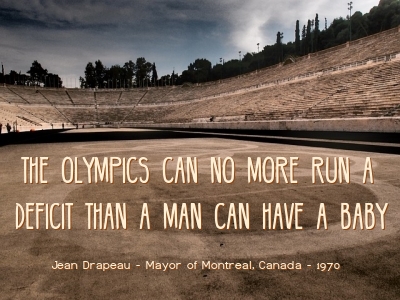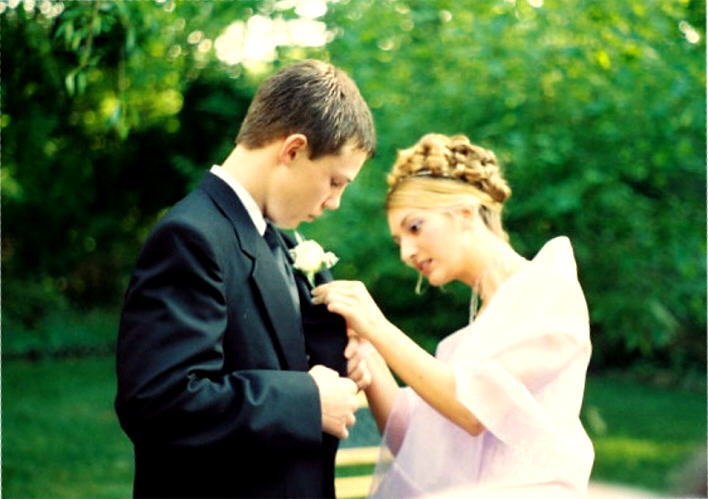Last updated on March 29th, 2020 at 05:20 pm
 Jacques Coubertin founded the modern Olympic movement in 1892. He was a French citizen who decided that France’s poor military showing was at least partly a result of a “lack of vigor” on the part of its soldiers.
Jacques Coubertin founded the modern Olympic movement in 1892. He was a French citizen who decided that France’s poor military showing was at least partly a result of a “lack of vigor” on the part of its soldiers.
Having determined that exercise and sports were the key to rallying the populace, Coubertin proposed reviving the ancient Olympic Games. Beyond invigorating the military, Coubertin’s dream was that the modern Olympics would unify the world.
We’ve come a long way, baby.
Since 1892, there has been some number of Olympiads. I can’t tell you how many, because ever since we went to the every-two-years model, I’ve lost count.
Now they refer to Olympiads by year, not by number. It’s too bad. Back in the day, the Olympics happened every four years. Nowadays, it’s every two years, with Winter and Summer alternating–except when world events get in the way of hosting the competitions.
“Since the opening of the first modern Olympic Games in 1896, the international sports competition has only been canceled three times: once during World War I (1916) and twice during World War II (1940, 1944). Until the 2020 COVID-19 outbreak, which postponed the Summer Olympic games for a year, the Olympics weathered politically charged boycotts and two separate terrorist attacks without being canceled or postponed during peacetime. — Dave Roos, History.com.
I think by splitting the games, we’ve lost some of the grand scope and occasion. Considering my big dream focus is about creating more wealth and financial stability in my life, I notice there is not all that much money to be made in hosting the Olympics, and that may have gotten worse since going to the summer/winter split as well. After a country gets done building new facilities and paying for all the organizational infrastructure to get the Olympics up and running, there’s not much profit leftover, if any.
And, contrary to many a hope, Olympic facilities are not that much of a tourist draw once the Games have come to a close. In fact, in 2012, National Geographic had a feature story on what happens to Olympic facilities, “Pictures: Past Olympic Venues—Rotting, Renovated, Repurposed.”
And that says it all.
On top of that, regular folks are finding it difficult–not to mention expensive, and even impossible–to get tickets to Olympic venues. Yet a scandal always brews about hundreds of seats being vacant at reportedly sold out events. Apparently, members of the Olympic “family” are failing to show up for reserved seating at prime events, leaving empty seats in plain sight while would-be spectators can’t get a ticket.
The International Olympics Committee (IOC) and its subsets, such as the US Olympic Committee (USOC), rigidly protect a corner on the use of the Olympics term, too.
It’s somewhat old hat to realize that the IOC has gone after several organizations for using the term “Olympics,” no matter how innocently or reverently. In 2012, there was a brouhaha in the knitting community when the USOC got huffy with the popular knitting social website Ravelry for using the term “Ravelympics” to encourage knitters to cast on and complete a project within the Summer Olympics timeframe.
Only another knitter would get the reference because every real knitter has a vast stockpile of partially finished sweaters, single knitted socks, and cast on lace scarves all abandoned in favor of The Next Big Project. Join the Ravelympics! Actually, finish something you start before you lose the pattern and forget where you left off!
But the USOC failed to get it. It issued a nasty cease and desist letter that included the following epithetical remark:
“We believe using the name “Ravelympics” for a competition that involves an afghan marathon, scarf hockey, and sweater triathlon, among others, tends to denigrate the true nature of the Olympic Games. In a sense, it is disrespectful to our country’s finest athletes and fails to recognize or appreciate their hard work.
Did you hear the roar? It was the vocal outrage of millions of knitters who take pride in their afghans, scarves, and sweaters and who do not appreciate (to put it mildly) the dismissive suggestion that knitting “denigrates” the hard work of athletes.
I’m a knitter, and I like athletes. I even kind of revere some of them. Ravelympics and wanting to start and finish a sweater while watching diving and gymnastics does not change that one bit. Do I need to apologize for my knitting goals offending top Olympians like Michael Phelps? I kind of doubt it.
Finally, before I close this mishmash of a big dream story about money, allow me to vent for a moment about my biggest Olympic pet peeve: medal counts.
The networks that broadcast the Olympics seem to have some locked-in assumption that people who watch the Olympics are anxiously awaiting the latest count of medals per country; and that more Americans will watch if more Americans win. It’s like an arms race, only without the potential nuclear destruction. Counting medals and comparing countries are downright contrary to Coubertin’s original vision of sport uniting the world. It’s jingoistic and divisive.
And just to get utterly incendiary on you, do you know who pioneered the medal count mentality?
Hitler. He was out to prove the superiority of the Aryan race back in 1936. Counting medals was his way of keeping score. As it turned out, the count didn’t go in his favor, but that’s neither here nor there. The point is, the Olympics are not about proving one country superior over another. They’re not even about winning medals. They’re about competing, about being sportsmanlike, and about meeting on a nonviolent, even playing field.
We give medals to pay tribute to the effort of the winner, not to turn everyone else into a loser.
But financially, does hosting the Olympics at different locations around the world make good fiscal sense anymore? Wouldn’t it be more prudent to host them in the same spot every two years? Like Athens, Greece, for the summer and Calgary for the winter games? And countries pitch in for costs and part of the financial gains (if any)?
Robert VanWynsberghe, a professor and sustainability expert at the University of British Columbia, has explained that the rising costs to cities to host the Olympics are a symptom of the bidding process to host the games.
Financial reporter, Jennifer Wills has written about the costs to the host cities, “Many of the arenas constructed for the Olympics remain expensive due to their size or specific nature. For example, Sydney’s stadium costs $30 million annually in maintenance. Similarly, Beijing’s Bird’s Nest arena costs $10 million in annual maintenance. It was 2006 before Montreal finished paying off its debt from the 1976 games, and Russian taxpayers will pay almost $1 billion annually for many years to come to pay off the debt from the 2014 Winter Games in Sochi. Furthermore, note that most of the facilities created for the Athens Olympics in 2004 contributed to Greece’s debt crisis and remain empty.”
And this doesn’t factor the implicit costs. For those of you who haven’t been reading my financial stores, implicit cost refers to any opportunity cost that a household budget incurs when resources (budget money not allocated) are used for something like painting the bathroom when painting the bathroom does not offer compensation for the committed resources (time, supplies, paint, etc.), like selling the house. Hence, the bathroom needs a coat of paint to get a better sales price. An Olympic city often hides the implicit costs from taxpayers, like displacing people from their homes to build a stadium and parking lots, so the Olympics cost taxpayers more.
I don’t know what the answer is to the burgeoning costs of hosting the Olympics. The numbers in the billions make my head spin. I am reminded of a quote by Henry David Thoreau,
“The cost of a thing is the amount of what I call life which is required to be exchanged for it, immediately or in the long run.”
Think about that the next time you have an urge to impulse buy.
Jayne Speich
Jayne Speich is an Online Instructional Designer, Associate Teacher, and small business coach residing in the Northern California wine country.
 |  |  |  |

Enjoy this special 8WomenDream Guest Contributor story submitted by new and experienced big dreamers throughout the world, edited and published to capture a dream perspective from different points of view. Do you have a personal dream story to share with 8WomenDream readers? Click here to learn how to submit dream big articles for consideration.
Note: Articles by Guest Post Contributors may contain affiliate links and may be compensated if you make a purchase after clicking on an affiliate link.




